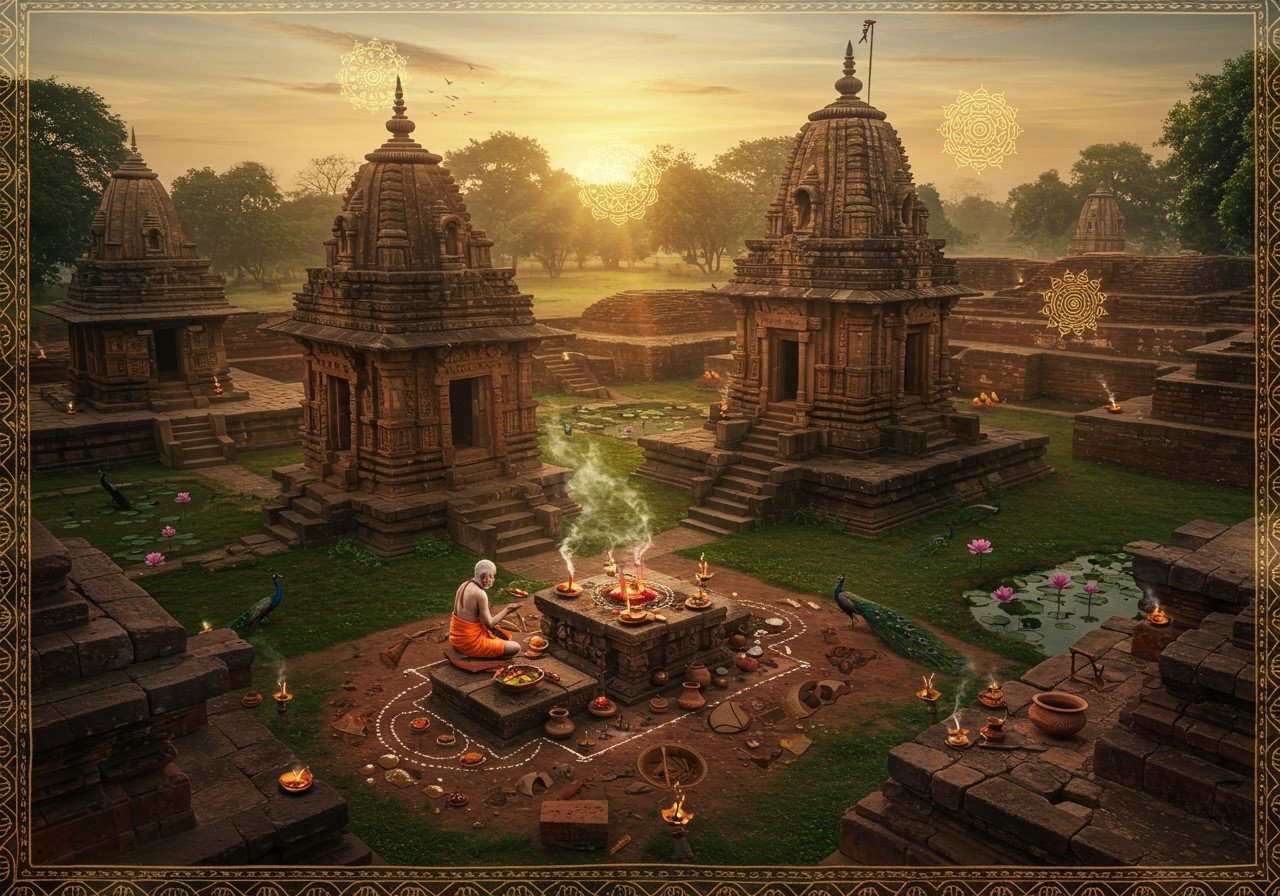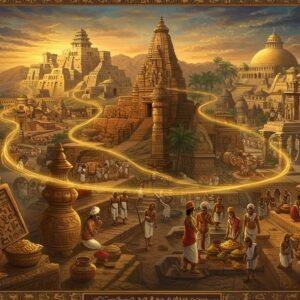
Koldihwa, nestled near the Belan River and the village of Devghat in Uttar Pradesh, India, offers a captivating blend of history and spirituality. This ancient site draws history buffs and spiritual seekers alike, beckoning them to explore its rich cultural heritage and enduring spiritual traditions.
Historical Significance of Koldihwa
Koldihwa stands as an archaeological marvel, renowned for its early evidence of rice cultivation and horse domestication dating back to the Neolithic era. The discovery of ancient cave paintings further enhances its historical importance. The Neolithic pottery and tools unearthed here offer glimpses into early human settlements and agricultural practices. This site provides valuable insights into the broader history of early agriculture and settlement patterns in India. The excavations conducted by the Archaeological Survey of India (ASI) have significantly enriched our understanding of prehistoric Indian societies.
Key findings include:
- Evidence of early rice cultivation and horse domestication, pushing back our understanding of agricultural practices in the region.
- Neolithic pottery and tools, providing tangible connections to the daily lives of Koldihwa’s earliest inhabitants.
- Ancient cave paintings, adding another layer of complexity to the site’s historical narrative and artistic expression.
Spiritual Importance of Koldihwa
Koldihwa has long served as a pilgrimage destination for those seeking peace and enlightenment. Ancient rituals and spiritual practices, many of which continue to this day, contribute to its allure. The serene natural surroundings amplify its spiritual energy, creating a tranquil space for meditation and retreat. Local legends and annual festivals further enhance its mystical aura.
Highlights:
- A pilgrimage site offering solace and a connection to deeper meaning for those seeking peace and enlightenment.
- Ancient rituals still practiced, providing a living link to the spiritual traditions of the past.
- Meditative natural surroundings, fostering a sense of tranquility and connection with nature.
- Local legends and folklore, weaving a tapestry of mystique and wonder around the site.
- Annual festivals and events, celebrating the cultural and spiritual heritage of Koldihwa.
Koldihwa Location and Accessibility
Koldihwa is situated in the Belan Valley of Uttar Pradesh, India, near Allahabad. It is accessible from major cities like Varanasi and Prayagraj via road and rail.
Travel tips:
- Nearest railway stations: Allahabad Junction, Varanasi Junction, offering convenient access by train.
- Nearest airports: Lal Bahadur Shastri Airport (Varanasi), Allahabad Airport, enabling travel from further afield.
- Local transport: buses, taxis, providing options for navigating the local area.
Nearby accommodations and attractions can enhance your visit, making it both comfortable and enriching.
Exploring Koldihwa: Key Sites and Attractions
Visitors are encouraged to explore the main archaeological digs, examine museum exhibits, and contemplate the ancient rice fields that reveal early agricultural practices. Temples and shrines offer a glimpse into the region’s spiritual traditions. The Vindhya Range provides opportunities for hiking and nature walks.
Activities to consider:
- Guided tours with local experts, providing deeper insights into the history and significance of the site.
- Meditation sessions, allowing visitors to connect with the spiritual energy of Koldihwa.
Cultural and Spiritual Etiquette
Respecting the cultural and spiritual traditions at Koldihwa is paramount. Always remove your shoes before entering temples or sacred spaces. Dress modestly to honor local customs. Maintain silence in meditation areas to preserve the tranquility. Be courteous to local residents and participate in rituals with an open heart.
Guidelines:
- Remove shoes before entering sacred spaces as a mark of respect.
- Dress modestly, adhering to local customs and traditions.
- Maintain silence in meditation areas, preserving the peaceful atmosphere for all.
- Be respectful during rituals, demonstrating reverence for the spiritual practices.
- Protect the natural environment, ensuring the preservation of this unique site for future generations.
How Poojn.in Supports Your Koldihwa Visit
Poojn.in, India’s leading provider of spiritual and puja items, can enhance your Koldihwa experience with our wide selection of authentic products. We offer:
- Traditional puja thalis and items, perfect for offerings and prayers at ancient sites like Koldihwa.
- Pure copper and brass items for sacred rituals, enhancing the authenticity of your spiritual practices.
- Genuine rudraksha malas for meditation, aiding in your pursuit of peace and enlightenment at this sacred site.
We deliver across India, ensuring you have everything you need for a spiritually enriching visit to Koldihwa. Browse our collection on our website https://www.poojn.in or download the Poojn app for convenient ordering and delivery.
Conclusion
A visit to Koldihwa offers a rare opportunity to connect deeply with India’s ancient history and spiritual heritage. Embrace the serene atmosphere, explore its wonders, and carry the respect for traditions throughout your journey. Plan your trip today and discover the hidden gem of Koldihwa.
FAQs: Visiting Koldihwa: A History & Spirituality Guide
Where is Koldihwa located? Koldihwa is located in the Belan Valley of Uttar Pradesh, India, near the Belan River and Devghat village.
What is the historical significance of Koldihwa? Koldihwa is known for its Neolithic-era evidence of rice cultivation, horse bones, and cave paintings, offering crucial insights into early human settlement and agriculture.
When is the best time to visit Koldihwa? The best time to visit is during the cooler months, from October to March, for comfortable exploration.
Kurmanathaswamy Temple Guide
Southern Char Dham
Pilgrimage Planning Guide


